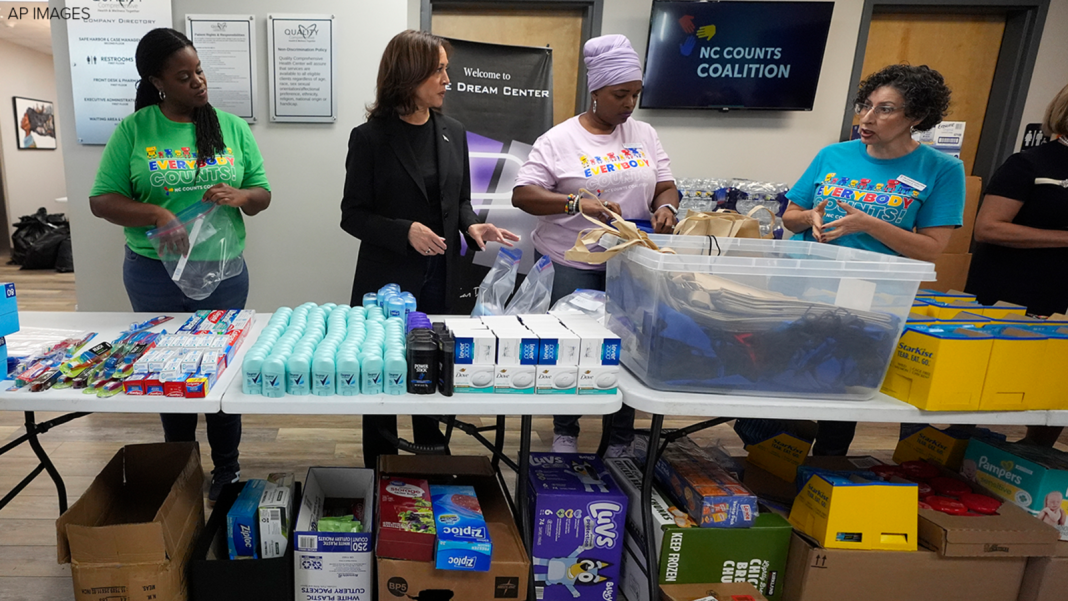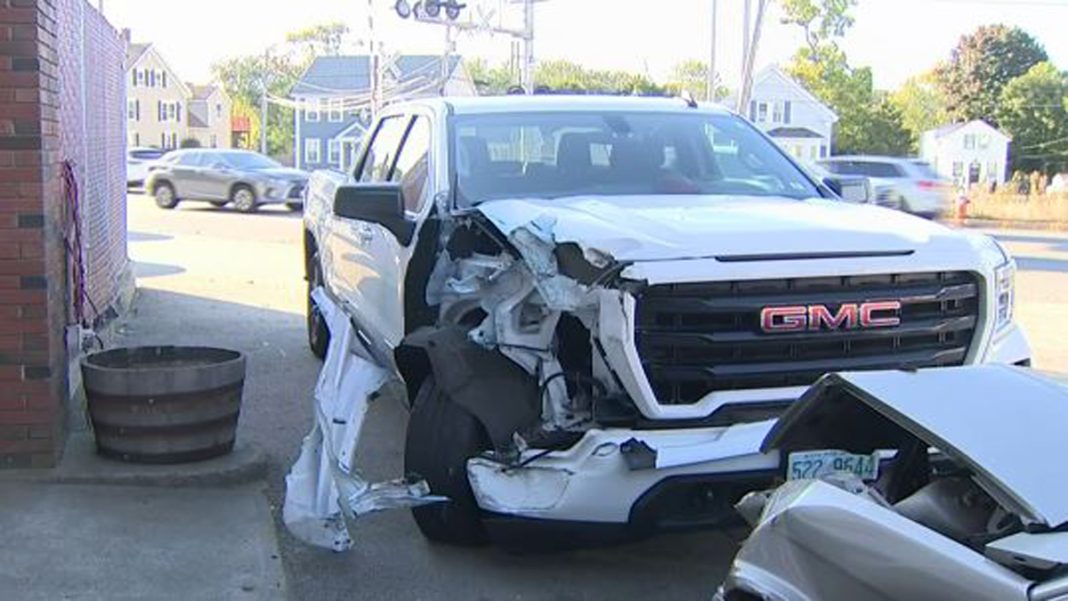In a poignant demonstration of empathy and support, Democratic presidential nominee Kamala Harris recently made her second trip to North Carolina in four days, following the devastation wrought by Hurricane Helene. Her visit highlighted not only the immediate needs of those affected but also the contrasting narratives emerging in the political arena as the election approaches.
Harris’s journey began with a briefing alongside state and local officials, where she expressed gratitude for the tireless efforts of first responders and volunteers. “Thank you to those who are in the room and those who are out there right now working around the clock,” she said, acknowledging the collective effort in the face of adversity. The vice president’s message was clear: federal support for recovery would remain steadfast, and she celebrated the spirit of community displayed by individuals helping one another through this trying time. “There’s a lot of resilience,” noted Angelica Wind, a local volunteer, reflecting the tenacity of those who are still grappling with the aftermath. Wind’s sentiment echoes a broader theme of human connection and solidarity that often emerges during crises.
Despite contrasting claims from former President Donald Trump, who criticized the federal response as “lousy,” North Carolina Governor Roy Cooper emphasized the state’s appreciation for federal resources. Cooper pointed out that FEMA has been actively involved since the storm’s onset, a crucial detail that counters Trump’s assertions. As of now, over 50,000 residents have registered for FEMA assistance, with nearly $6 million already disbursed to aid recovery efforts. This disparity in narratives illustrates how political motivations can distort public perception during times of crisis, especially in an election year.
Harris’s commitment to addressing the needs of disaster-stricken communities aligns with recent studies suggesting that empathetic leadership is vital in times of tragedy. Research by the Harvard Business Review indicates that leaders who demonstrate genuine concern and responsiveness can significantly enhance public trust, an essential commodity in today’s polarized political landscape. Harris’s approach is a deliberate attempt to fill a role that President Biden has traditionally held—one of empathy and moral support following national disasters.
In the wake of Hurricane Helene, which has claimed over 200 lives and is noted as the most severe storm to impact the U.S. mainland since Hurricane Katrina in 2005, the Biden administration has taken proactive measures to extend support across the Southeast. President Biden himself visited several affected areas, surveying damage and meeting with farmers who have lost their crops. His administration has pledged to cover costs associated with rescue and recovery efforts for several months, though a letter to congressional leaders highlighted an impending shortfall in FEMA’s Disaster Relief Fund.
As the political landscape evolves, the juxtaposition of Harris’s and Biden’s compassionate responses against Trump’s contentious rhetoric raises important questions about the role of leadership in crisis management. Trump’s dismissal of climate change as a “scam” further complicates the dialogue, especially as scientists warn that such storms are likely to intensify due to climate change. This intersection of natural disaster and political strategy reveals a critical tension: how to effectively address the immediate needs of citizens while navigating the complexities of public opinion and political agendas.
Harris’s visit to North Carolina is not merely a campaign strategy; it is a reflection of her recognition of the importance of empathy in leadership. “We are here for the long haul,” she asserted, encapsulating the commitment required to support communities in recovery. Her efforts to connect with those affected by the storm—helping pack aid kits and listening to their stories—serve as a reminder that, amid the political wrangling, the true heroes are the individuals who step up to help their neighbors in times of need.
As North Carolina remains a critical battleground state in the upcoming election, the stakes are high. Harris’s actions convey a message that transcends political affiliation: solidarity and support during crises can unite even the most divided communities. As the nation prepares for a pivotal election, the lens through which we view leadership in times of tragedy may very well influence the future course of American politics.


